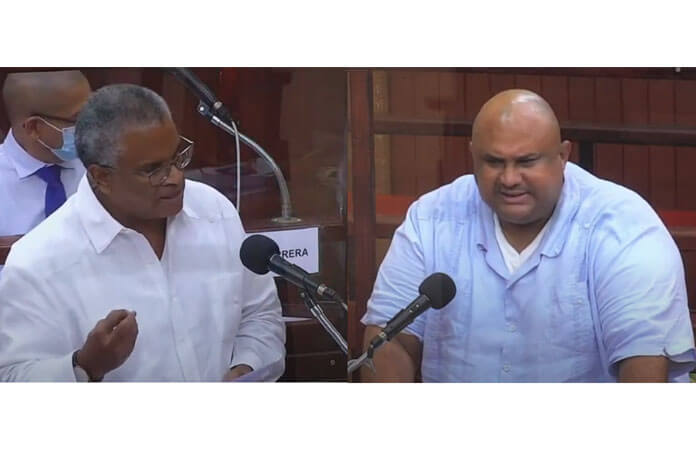BELIZE CITY. Thurs. Apr. 29, 2021– The Senate passed the Time Limit for Judicial Decisions Bill 2021, an act to set limits on the amount of time that passes before the delivery of judgments, after cases are concluded. Judges sitting on the Supreme Court and Court of Appeal will now be subject to dismissal if written judgments are not delivered within 6 months.
Lead Government Senator Eamon Courtenay stated during that meeting of the Senate that the new time limits are necessary for the deliverance of justice without delay and to remedy a culture of delayed judgments left behind by the former Chief Justice, Kenneth Benjamin.
“Madam President, the Bill before us provides the setting of time limits for the delivery of judgments. The time limits are 6 months, both in the Court of Appeal and in the Supreme Court, and it provides for the time limits of applications not later than 3 days. The mischief that this bill is designed to [remedy], Madam President, is to ensure that people who go to court seeking justice are not denied justice by delay. We have a very unfortunate and really outrageous situation of the last Chief Justice leaving the jurisdiction with judgments that had not been completed and the Belizeans, litigants, I should say, are before the court trying to figure out what to do. This bill is a part of the reform agenda of the People’s United Party, Madam President,” Senator Courtenay remarked.
Lead Opposition Senator Micheal Peyefitte asserted, however, that the country already has legislation in place to remedy the issue of late or delayed judgments. He added that the new law may present an added layer of pressure for judges and result in a reduction of their time on the bench.
He said, “The chief mischief-makers, if you want to put it that way, have left the jurisdiction. I don’t think that since that time we have had any inordinate delays in the delivery of judgment, or have we?”
He expressed his view that, as a result of the effort to remedy one mischief, many others might potentially be created.
“In this Bill, it’s saying that the judge essentially has 6 months, 180 days, so the case is finished today and the judge has six months to deliver that judgment or the judge will be liable to be removed from the bench. When you put that restriction like that, Madam President, and you expect judgment to be delivered within that time, and I believe that they should be delivered within that time, you know. But what you would create then, I fear, is a situation where a judge finishes a case now, and that judge primarily moves into trying to finish that decision or to right that decision, and what if a judge decides, ‘you know what, I will take four months to write this decision or three months to write this decision’, the judge would still be within the law, protecting him and her from being removed, because they are within the six months, but the judge can say, ‘since I need two months to write this judgment and time limits are so important, then for the next two months I won’t take on any other case’.” Senator Peyefitte pointed out.
The Senate also debated a constitutional amendment that ties in with the new time limit legislations. In order to implement the new grounds for the removal of judges, the Government of Belize had to put in place an amendment of section four of the Belize Constitution to allow for additional grounds for the removal of a judge.
“Madam President, members of the Senate, this amendment to the Constitution ties directly with the bill that we just debated. It now adds as a ground for removing a judge for persistently failing to give written decisions and reasons for the decision. So, this is just making sure that under the provision of the Constitution, which gives independence and security of tenure to judges, a new ground is being inserted, tied to that, if a judge fails persistently, to deliver written decisions,” Senator Courtenay explained.
Today the Caribbean Court of Justice (CCJ) delivered a ruling in which the CCJ criticized the Barbados Court of Appeal for what it called “unacceptable and serious delay” in delivering its judgment in the case of the Estate of Marjorie Lima Knox v John Vere Evelyn Deane and others. [2021] CCJ (AJ).
The Court of Appeal in Barbados took four years to deliver its judgment for that particular case, which was presided over by two different judges.

